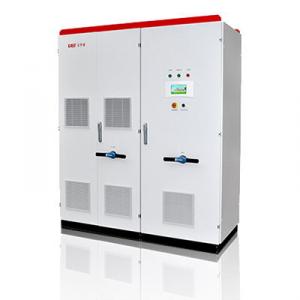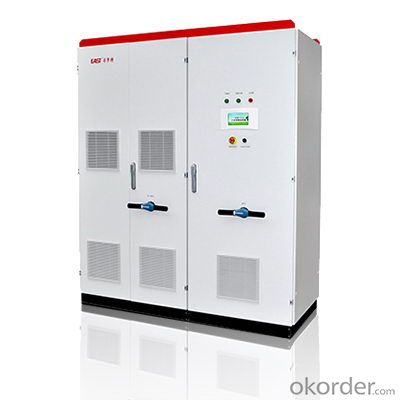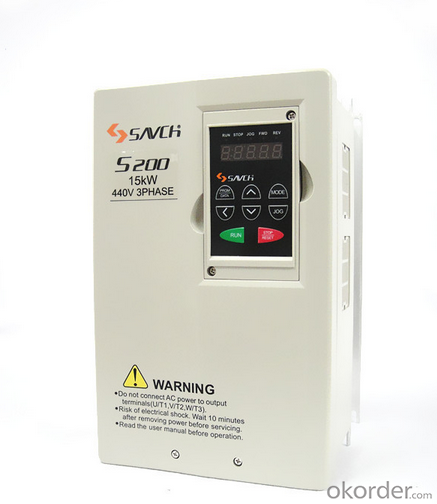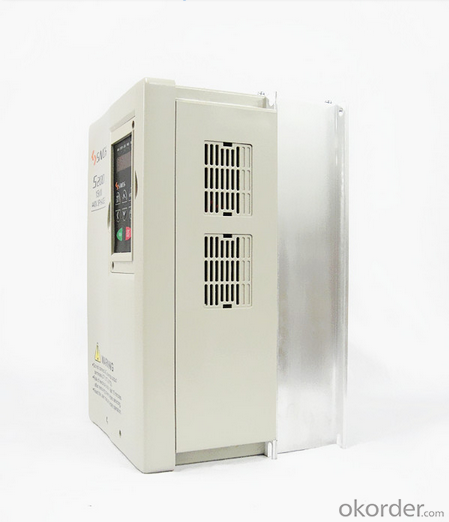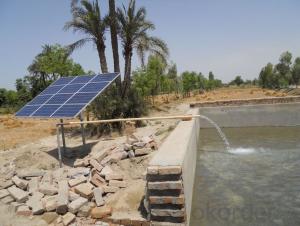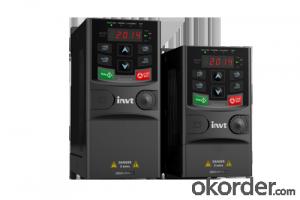Ebay Solar Inverter - Central Inverter with External Transformer, High Power Density Design for Smaller Size
- Loading Port:
- China main port
- Payment Terms:
- TT or LC
- Min Order Qty:
- 10 carton
- Supply Capability:
- 20000 carton/month
OKorder Service Pledge
OKorder Financial Service
You Might Also Like
EA500KTS/M / EA630KTM/X
The central inverter with external transformer adopts high power density design to be smaller size and optical fiber isolation technology to have strong anti-jamming capability, and also integrates DC distribution cabinet function to be more suitable for big power plant; and. It offers different output voltage options
● Low-voltage and zero-voltage ride through to cope with various grid conditions
● Nighttime SVG function, ready for power compensation full time
● Adjustable active power, power factor adjustment from 0.9 overexcited to 0.9 underexcited
● Max. Efficiency at 98.7% (without transformer)
● Advanced MPPT algorithm
● Anti-islanding
● Wide DC input voltage, easy to make the combination of PV array
● CQC certificates (pass CQC33-461239-2013ma test), TÜV certificates, CE certificates
Specification / Type | EA500KTS | EA500KTM | EA630KTM | EA630KTX |
Input (DC) | ||||
Max DC Voltage | 1000Vdc | 1000Vdc | 1000Vdc | 1000Vdc |
Full-load MPPT Voltage Range | 450~820Vdc | 500~850Vdc | 500~850Vdc | 500~850Vdc |
Max DC Power | 550KWp | 550KWp | 630KWp | 630KWp |
Max DC Current | 1200A | 1100A | 1260A | 1200A |
Number of DC Inputs | 16 | 16 | 16 | 16 |
Output (AC) | ||||
Nominal AC Power | 500KW | 500KW | 630KW | 630KW |
Nominal AC Voltage | 270Vac | 315Vac | 315Vac | 400Vac |
AC Voltage Range | 210~310Vac | 245~362Vac | 245~362Vac | 312~460Vac |
Nominal Frequency | 50Hz/60Hz | |||
Frequency Tolerance Range | 47-51.5Hz/57-61.5Hz | |||
Distortion (THD%) | <3%(at nominal power) | |||
Power Factor (Cos phi) | 0.9(leading)~0.9(lagging) | |||
System Parameters | ||||
Max Efficiency | 98.7% | |||
Euro Efficiency | 98.5% | |||
Protection Degree | IP20 (indoor) | |||
Night Consumption | <100W | |||
Operation Temperature Range | -25℃~+55℃ | |||
Cooling | forced-air cooling | |||
Relative Humidity | 0-95%, no condensation | |||
Max Working Altitude | 2000m (derating above 3000m) | |||
Display and Communication | ||||
Display | LCD | |||
Standard Communication | RS485 | |||
Optional Communication | Ethernet /USB | |||
Structure Parameters | ||||
Dimensions(W×D×H) | 1800×800×2200mm | |||
Weight | 1500kg | |||
· Q. What is an UPS and What it is for ?
An uninterruptible power supply (UPS) is a device that allows your computer or telephone switch or critical equipement to keep running for at least a short time or longer time when the primary power source is lost. It also provides protection from power surges, spikes, brownouts, interference and other unwanted problems on the supported equipment.
· Q. How long the UPS to run when power goes?
This can take 3 paths.
1.You can pick a UPS that is rated for pretty much the full VA you need so it will be running at 100% of capability and will thus last 'n' minutes.
2.You can pick a UPS that is rated at a much higher VA value than you really need so, for example, is running at 50% of capability and will thus last for longer than the UPS from option 1.
3.You can use extra external battery packs to run for longer. If charging capability allows, the more and the bigger batteries you take with, the longer time UPS runs.
or using a generator after about 6 hours, it will be more cost-effective, with a short runtime UPS to bridge the generator start-up gap.
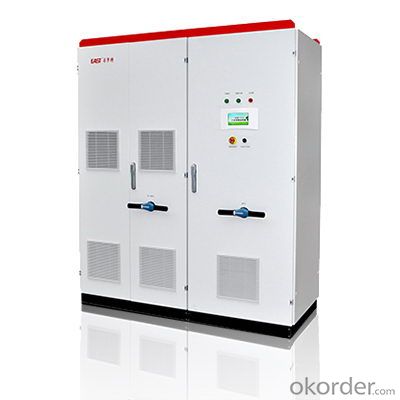

- Q: What is the role of a power limiter in a solar inverter system?
- The primary function of a power limiter in a solar inverter system is to regulate the amount of power that is supplied to the grid from the solar panels. When the solar panels produce more power than necessary or permitted by the grid, the power limiter serves as a control mechanism to restrict the amount of power injected into the grid. This control mechanism ensures that the power output from the solar panels remains within the specified limits, preventing any overloading or destabilization of the grid. To achieve this, the power limiter continuously monitors the power output from the solar panels and adjusts it accordingly to meet the grid requirements. It achieves this by intelligently controlling the inverter, which converts the direct current (DC) generated by the solar panels into alternating current (AC) suitable for integration with the grid. By limiting the power fed into the grid, the power limiter plays a crucial role in maintaining the stability of the grid. It helps prevent voltage fluctuations, reduces the risk of power surges or blackouts, and ensures compliance with local regulations and grid codes pertaining to solar power generation. Furthermore, the power limiter can offer additional functionalities such as grid synchronization, anti-islanding protection, and remote monitoring. These additional features enhance the safety, reliability, and overall performance of the solar inverter system. In summary, the inclusion of a power limiter in a solar inverter system is essential for maintaining a balance between power generation and grid stability. It optimizes the use of solar energy and ensures the safe and efficient integration of solar power into the electrical grid.
- Q: How does a solar inverter affect the overall system performance in different weather conditions?
- A solar inverter plays a crucial role in the overall system performance of a solar energy system in different weather conditions. In sunny weather, the solar inverter efficiently converts the direct current (DC) generated by the solar panels into alternating current (AC), optimizing power output. However, in cloudy or overcast conditions, the solar inverter mitigates the impact of reduced sunlight by employing maximum power point tracking (MPPT) technology, ensuring that the system operates at its peak efficiency and extracts the maximum available energy from the panels. Additionally, advanced inverters can also provide grid stabilization during extreme weather events, such as storms or voltage fluctuations, safeguarding the system and enhancing its performance and reliability. Overall, a well-functioning solar inverter is essential for maximizing energy production and maintaining optimal system performance in varying weather conditions.
- Q: How does a solar inverter handle voltage sags or swells in the grid?
- A solar inverter handles voltage sags or swells in the grid by continuously monitoring the voltage levels. When it detects a sag or swell, it adjusts its internal circuitry to regulate the output voltage accordingly. This ensures that the connected solar panels continue to operate within their optimal voltage range, minimizing any negative impact on the overall power generation system.
- Q: Can a solar inverter be used with battery storage?
- Yes, a solar inverter can be used with battery storage. In fact, integrating a solar inverter with battery storage systems allows for storing excess solar energy generated during the day and using it at night or during times of high energy demand. This combination enables greater energy independence and the ability to use renewable energy even when the sun is not shining.
- Q: What is the role of a maximum power point tracker in a solar inverter?
- The role of a maximum power point tracker (MPPT) in a solar inverter is to ensure that the solar panels are operating at their maximum power output. The MPPT continuously monitors the voltage and current of the solar panels and adjusts the operating conditions to find and maintain the maximum power point. This optimization helps to maximize the efficiency and overall energy generation of the solar system.
- Q: What is the role of an anti-islanding function in a solar inverter?
- The role of an anti-islanding function in a solar inverter is to ensure the safety of utility workers and prevent damage to the grid. It detects when there is a loss of connection to the grid and immediately shuts down the inverter, preventing it from continuing to supply power to the grid during a power outage. This is crucial because it prevents a potential dangerous situation called islanding, where the inverter continues to generate power and creates a false grid, posing risks to utility workers who may be working on the grid. By shutting down the inverter during an outage, the anti-islanding function helps maintain the stability and integrity of the electrical grid.
- Q: What is the role of a power management system in a solar inverter?
- The role of a power management system in a solar inverter is to efficiently manage the flow of electricity from the solar panels to the grid or the connected devices. It ensures that the power generated by the solar panels is optimized, regulated, and synchronized with the grid's requirements. The power management system helps in maintaining the stability and reliability of the solar inverter system by monitoring, controlling, and adjusting the power flow, voltage levels, and frequency to prevent overloading or underutilization of the solar energy.
- Q: What is the maximum power capacity that a solar inverter can handle?
- The maximum power capacity that a solar inverter can handle depends on its specific model and design. In general, solar inverters range in power capacities from a few hundred watts to several megawatts.
- Q: What are the methods of photovoltaic grid-connected inverter control
- Sine wave output inverter control integrated circuits, sine wave output of the inverter, the control circuit can be used microprocessor control, such as INTEL company produced 80C196MC, Motorola produced MP16 and MI-CROCHIP company PIC16C73 and so on, these single-chip microcomputer has a multi-channel PWM generator,
- Q: Can a solar inverter be used for both grid-tied and off-grid systems?
- Yes, a solar inverter can be used for both grid-tied and off-grid systems. However, it is important to note that there are different types of solar inverters designed specifically for each system. Grid-tied inverters are designed to convert DC power generated by solar panels into AC power and feed it into the grid, while off-grid inverters are designed to convert DC power into AC power for use in standalone systems not connected to the grid.
Send your message to us
Ebay Solar Inverter - Central Inverter with External Transformer, High Power Density Design for Smaller Size
- Loading Port:
- China main port
- Payment Terms:
- TT or LC
- Min Order Qty:
- 10 carton
- Supply Capability:
- 20000 carton/month
OKorder Service Pledge
OKorder Financial Service
Similar products
Hot products
Hot Searches
Related keywords
